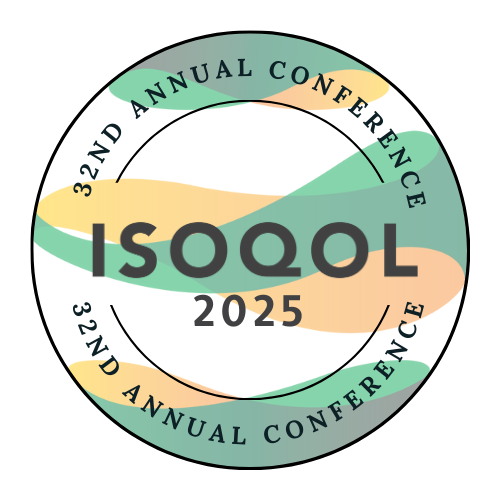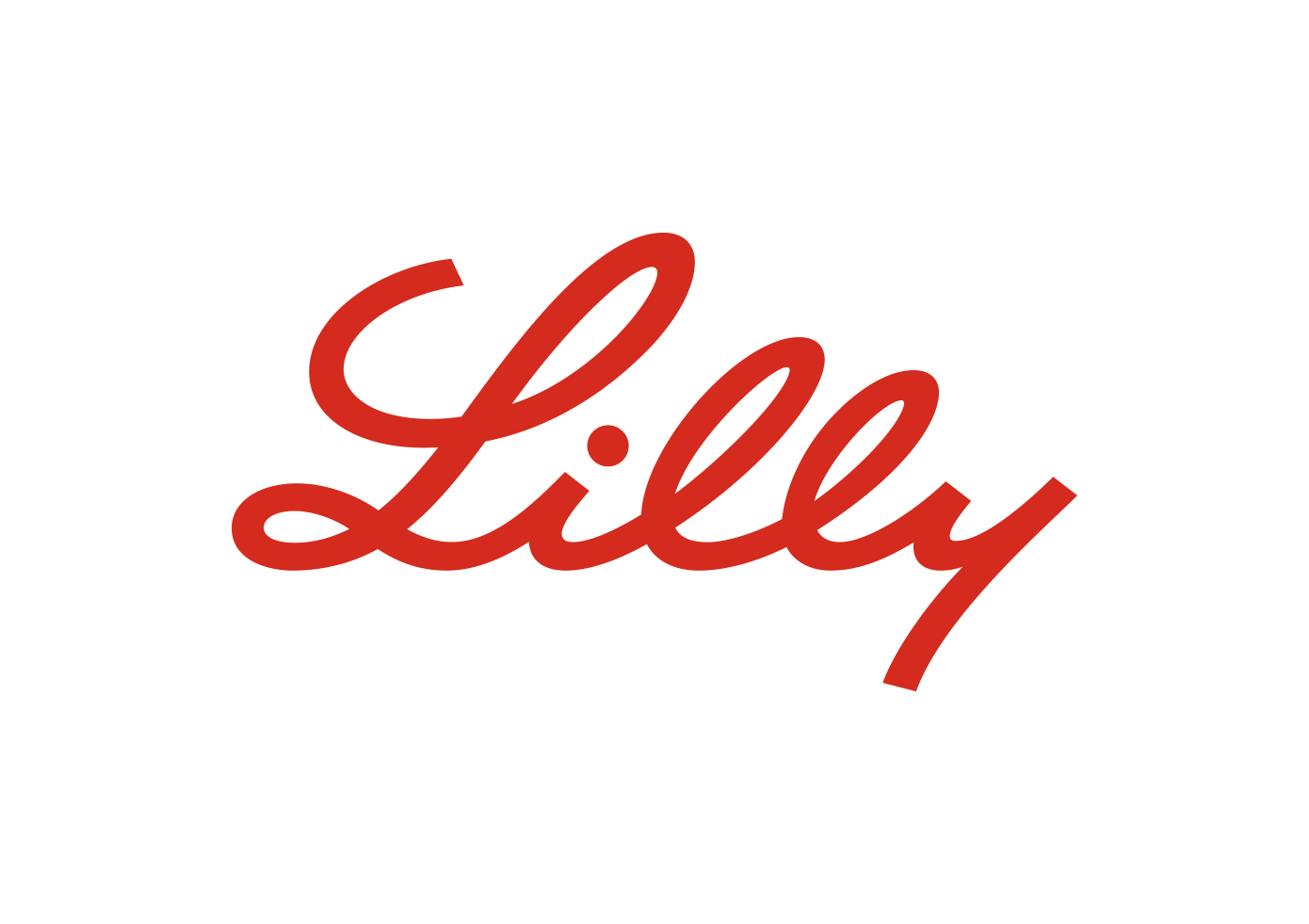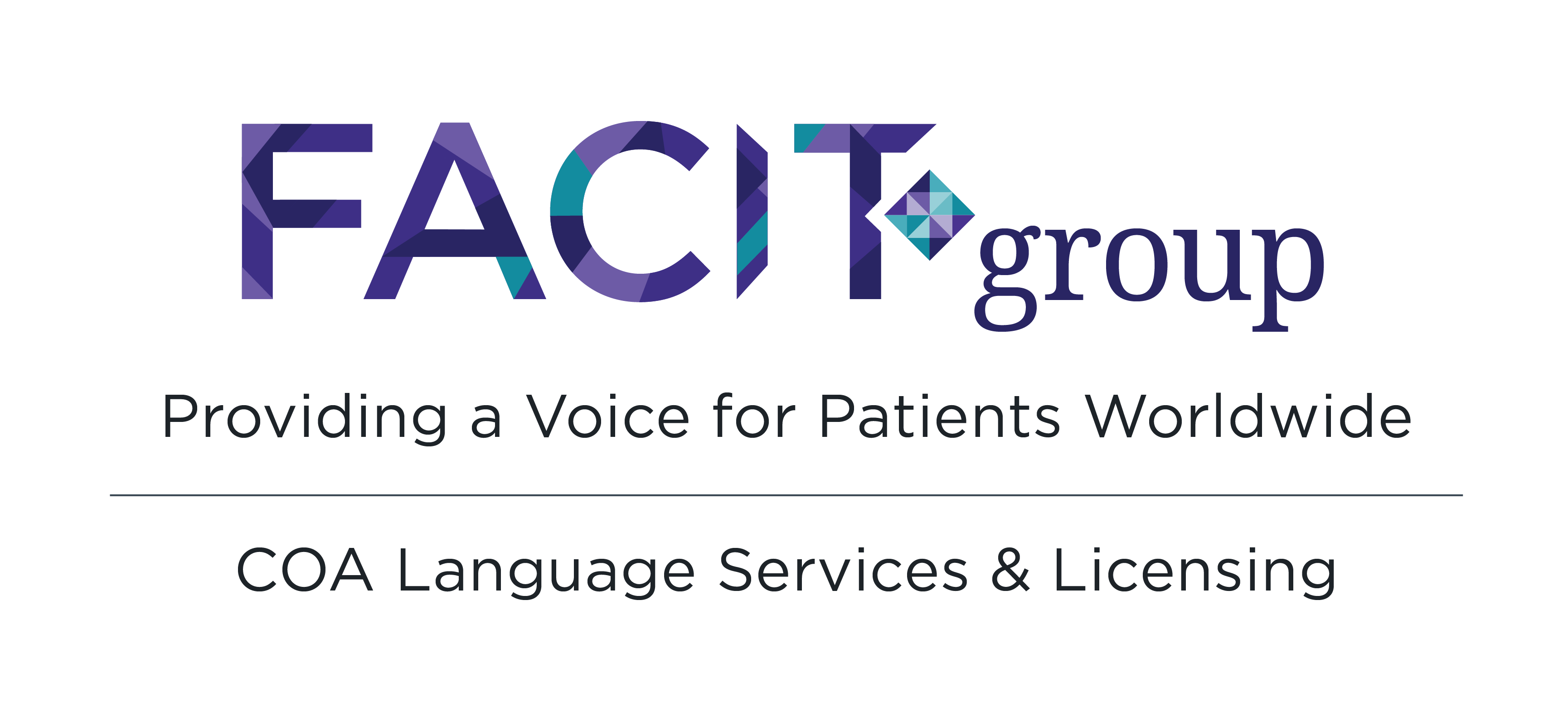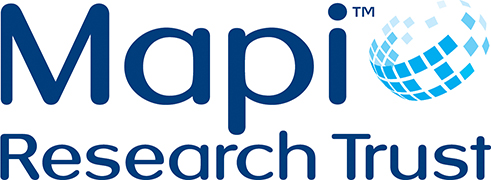Abstract Information
General Information
Abstract Note
The final program will be available digitally on the mobile app to all conference attendees. A printed daily agenda will be available at the registration desk by request only. The abstract title, all contributing authors, and the entire abstract will still be published in the Journal of Patient-Reported Outcomes supplement. The open access, digital journal supplement will be available online after the Annual Conference, by the end of November. Conference attendees will have early access to the abstract text via the mobile app.
NEW! Journal of Patient-Reported Outcomes Abstract Supplement
Starting in 2025, the Annual Conference Abstract Supplement will be published in the ISOQOL-owned Journal of Patient-Reported Outcomes (JPRO), making the supplement open access. Abstracts accepted for presentation will be included in the conference program and published in the Journal of Patient-Reported Outcomes Abstract Supplement, so long as the presenter confirms their intent to present by 30 July 2025. Presenters who do not confirm by 30 July run the risk of not having their abstracts included in the conference program or the Abstract Supplement.
The Abstract Supplement will be available digitally to all by the end of November 2025.
Cancellation and Presenter Replacement
Presenting authors who are unable to present their oral, oral brief and/or poster presentations may elect to have one of their co-authors serve as presenter, provided the co-author has not exceeded the maximum number of presentations per person. All presentation cancellations and presenter changes must be received in writing before 11 August 2025 to conference@isoqol.org. Late cancellations or failure to present without prior notice may result in restrictions on abstract acceptance for future ISOQOL conferences.
Certificates of Presentation
Certificates of Presentation will be distributed electronically after the conference to all presenters.
Cancellation Policy
Attendees agree to waive any and all claims for damages or compensation resulting from or relating to the cancellation, postponement, renaming, relocation or rescheduling of the Event. ISOQOL may (at its sole discretion) change the format (including, without limitation, from a physical in-person Event to a virtual Event and vice versa), speakers, participants, content, venue location and program or any other aspect of the Event at any time and for any reason, whether or not due to a Force Majeure Event (any event or circumstance arising that is beyond the reasonable control of ISOQOL), in each case without liability.
Important Dates*
*All deadlines end at 11:59 PM Central Time on the day of their deadline unless otherwise noted. This excludes registration deadlines, which end at 6:59 PM Central Time.
**All presenters must purchase registration by this date in order to have their abstract published and receive a scheduled time to present at the conference.
Submission Guidelines
The following guidelines apply to all abstract submissions for the 32nd Annual Conference. Click the links at the left for further guidelines specific to each abstract submission type.
Original Work: Each abstract should represent complete and original results. Submitting multiple abstracts based on the same data is not permitted. Research that has been presented or published prior to the time of abstract submission will not be considered for the ISOQOL Annual Conference.
Official Language: Abstracts must be submitted and presented in English, the official language of the ISOQOL Annual Conference.
Submission Method: Only electronic submissions will be considered for review.
Supported Browsers: Please use one of the following browsers to submit your abstract: Internet Explorer 11, Firefox (current version), Chrome (current version), Microsoft Edge, Apple Safari 11 and above.
Session Timeout: Inactivity of more than 120 minutes on the same page will result in a session time out. Please save your pages intermittently to avoid loss of data.
Sentence Case: Do not submit abstracts in all capital letters. Abstracts (including titles) should be submitted in sentence case.
Abstract Structure: Abstract submissions must be structured as follows: Aims, Methods, Results and Conclusion. All fields are mandatory.
Word Limit: Abstracts must be 350 words or fewer. Word count is calculated as the cumulative number of words in the four sections only. Abstract title and supporting graphs or figures are not included in the total word count.
Supporting Images: You may attach up to three (3) supporting images in JPG format. Please note that any files in a format other than JPG will be discarded as the publisher only accepts JPG format. Do not submit images of your abstract text. We will not include any of your supporting images if you submit more than three (3) maximum limit per abstract.
Remove Identifiers: Please remove any indicators of authors’ names throughout the abstract submission and uploads (if applicable), to ensure a true double-blind peer review process.
Proofread: The information provided in the submission will be published exactly as submitted. In some cases, special characters and formatting do not transfer if the abstract is pasted into the submission fields from a word processing program. Common examples of this include missing apostrophes, accent marks, ampersands, and trademark symbols. Proofread your submission carefully, and if needed, add these characters individually using keyboard shortcut “alt” codes. ISOQOL will not be responsible for incorrect symbols or special characters in your abstract.
Incomplete Submissions: Abstracts that are in draft form will not be considered for review.
Submission Edits: You may revisit the site up until the posted deadline to edit your submission.
Presenter Restrictions: A maximum of three* (3) abstracts may be selected by any one presenting author. Only two oral or oral brief presentations will be permitted per presenting author. An author may only contribute to the presentation of one symposium. While there is not a limit on the number of workshops one author can contribute to, for scheduling purposes it is recommended to contribute to no more than two workshop proposals.
Please direct technical support questions to conference@isoqol.org.
Oral, Brief, and Poster Submission Guidelines
In-person oral, oral brief, and poster abstract submissions and virtual poster abstract submissions are now closed.
Presentation Preference
When submitting an abstract, select all the presentation formats which you would like your research to be considered.
Please note: All oral, oral brief, and in-person poster presenters are expected to travel to Milwaukee, Wisconsin, USA to present their research in-person.
Oral Presentation Sessions
All oral sessions are 90 minutes and contain five individual presentations. Each presenter is allotted approximately 11 minutes to present their research immediately followed by five minutes to answer questions from the audience. The Session Chair will introduce each presenter prior to his presentation and facilitate discussion questions following the conclusion of each presentation. There is a maximum of 10 slides per oral presentation (including title and acknowledgement slides).
Oral Brief Presentation Sessions
Oral briefs offer the distinct opportunity to give a short verbal presentation in a group setting. An oral brief session includes up to 10 presenters. After a personal introduction by the moderator, each speaker has 7 minutes to present using five content slides (maximum) plus a title slide. While the rapid pace of oral briefs does not allow for audience Q&A within the session, presenters are encouraged to stay after the conclusion of the session to make themselves available for questions.
In-person Poster Presentation Sessions
Poster presenters attending the in-person conference should prepare a three (3) minute presentation and be able to discuss their research with their peers. Presenters must stand in front of their posters during the allotted presentation time. Handouts relating to posters are welcome.
To expand the reach of their research and to provide virtual attendees with an opportunity to view their presentations, in-person poster presenters are encouraged to create an additional virtual poster.
Pre-recorded Virtual Poster Presentation Sessions
Virtual poster presenters should prepare a short presentation to accompany their poster. All virtual posters will be created and available for viewing through the cloud-based platform, iPosterSessions.
Primary Applications for Abstracts
Only one Primary Application can be selected per abstract. A description of the Primary Applications is noted below.
Theoretical Work
Abstracts in this category use theory to advance the understanding of HRQL phenomena. Such work might include novel efforts to explain known associations or relationships observed in the literature; modifications or extensions to theories that are routinely or historically used in HRQL research and applications; or applications of an established theory from another field to HRQL phenomena. Abstracts in this category should not be presenting new data (including qualitative or formative work) or meta-analyses, but may reference published data in support of a theory.
Methodological Work
Work in this category reports on qualitative or quantitative methods for developing and evaluating patient-reported health status, as well as methods for analyzing and interpreting scores from such measures of health assessments. While the work might feature a particular disease area or measure, the primary aim of the work is to present a method rather than present findings about a particular measure or population.
Application: Clinical Research
Abstracts in this category use patient-centered measures to better understand the nature, prevention, treatment, and management of different health conditions. Approaches used in this category could include qualitative or quantitative, randomized or non-randomized, cross-sectional or longitudinal, and meta-analyses.
Application: Clinical Care
Abstracts in this category include reports of efforts to integrate the patient’s voice more effectively into clinical encounters. Examples include descriptions of experiences implementing a standardized PRO collection system in a single clinic, reports of the development of a streamlined questionnaire battery for patients to complete prior to visits, and efforts to develop better reports for clinicians of patients’ PRO data over time. It is expected that abstracts in this category are more descriptive in nature with limited sample sizes. Larger and/or randomized studies should be categorized as Clinical Research.
Application: Policy
Abstracts in this category focus on issues relevant to the requirement, development, and large-scale (e.g., Health System, Government) application of patient-reported outcomes in health care practice, regulatory, and population/surveillance settings. Abstracts may include program evaluation, case studies, and economic analyses.
Secondary Applications for Abstracts
Select at least one Health Condition and one Population that best define(s) your abstract. A minimum of one and a maximum of two may be selected for each question.
Health Conditions
- Cancer
- Cardiology
- Endocrinology/Diabetes/Obesity
- Mental Health
- Musculoskeletal/Rheumatic
- Nephrology/Urology
- Neurological
- Rehabilitation
- Respiratory
- Other health condition
Populations
- Children and adolescents
- Older people
- Caregivers and relatives
- Cultural and ethnic minorities
- Vulnerable populations
- General population
- Other populations
Review Process
Oral, oral brief, and poster abstracts undergo a double blind peer review led by the Scientific Program Committee. To ensure that abstracts within each of the primary categories are fairly evaluated, abstract reviewers are asked to identify which primary and secondary categories reflect their areas of expertise.
Abstracts are evaluated based on the following criteria:
- Importance of the problem being addressed
- Innovation of the approach
- Rigor of the approach
- Clarity of the description of the work
- Potential impact of the work described
Abstract Acceptance Notification
Acceptance notifications will be sent to the presenting author listed on the abstract submission in mid-July. Presenting authors are responsible for communicating the presentation status of their abstract with their co-authors.
Accepted abstracts will be assigned to a specific session/presentation time. All presenters must use the online acceptance and disclosure form to confirm their intention to present by 30 July 2025 in order to be included in the conference program and have their abstract published in the Abstract Supplement. If you have not received a notification email by 16 July 2025 contact conference@isoqol.org.
Oral Presentation Guidelines
*In-person presentations only.
All oral sessions are 90 minutes and contain five individual presentations. Each presenter is allotted approximately 11 minutes to present their research immediately followed by 5 minutes to answer questions from the audience. The Session Chair will introduce each presenter prior to his presentation and facilitate discussion and Q&A following the conclusion of each presentation. There is a maximum of 10 slides per oral presentation (including title and acknowledgement slides). Presentation order will be listed in the final program, which will be available through the conference mobile app.
Your assigned “Presentation Number” (104.3, 105.4, 108.2 etc.) indicates the assigned session and presentation order. For example, ”104.3” indicates Oral Session 104 and presenter number three. The Presentation Number will be emailed to the presenting author listed on the abstract submission following the presenter registration deadline on 11 August. This number is how your abstract will be identified in the digital Journal of Patient-Reported Outcomes Abstract Supplement and the conference program on the mobile app.
Presentation Slides
Please arrive in the conference room early, at least 10-15 minutes prior to the start of your session, to upload your presentation deck, check the equipment, and allow for ample time for AV technician support in the instance of a technical difficulty.
Oral and Oral Brief presenters have the option to upload their presentation slides to a Dropbox folder hosted by ISOQOL. The Dropbox link will be made available in September.
Onsite, presenters will be able to access the Dropbox folder content on the laptops provided in each session room. If you submit your presentation slides by the evening before your scheduled presentation, ISOQOL Staff will download/save them on the laptop. After this deadline, presenters are responsible for downloading/saving the presentation slides from the Dropbox folder onto the laptop to ensure a seamless projection on the screen and avoid technical difficulties due to internet connection.
Presenters still have the choice to bring their slides on a USB flash drive if desired.
Disclaimer: The Dropbox folder is an additional resource, and ISOQOL cannot guarantee the privacy of your slides once uploaded, as presenters and attendees will be able to access the content through the laptops in the session rooms. The Dropbox folder is an alternative to using a USB flash drive and is not a speaker ready room.
Ensure the file you upload to the Dropbox is the final version of your presentation. Please do not submit duplicates of your presentation slides, such as last-minute updates. ISOQOL Staff is not responsible for maintaining the latest version of the slides. If you updated/edited your slides, please use a USB flash drive to upload the latest version onto the laptop.
File Naming Convention
It is imperative that you use the following naming convention before uploading the final version of your file to the Dropbox: session number, followed by presentation order and abstract title (Example: 101.2 Abstract Title). The Presentation Number will be emailed to the presenting author listed on the abstract submission following the presenter registration deadline on 11 August.
Other Recommendations/Tips
We recommend saving a copy of your PowerPoint slides as a PDF file as a backup and having any videos you included in your presentation saved as MP4 files as well (audio will play through the laptop’s speakers, so sound quality is not guaranteed). As a precaution, bring all media files with you, even though you’ve embedded them in your slide presentation.
Please do not use automatic slide advance timings.
Slides should be in widescreen format (16:9 ratio). The conference rooms will be equipped with 16:9 aspect ratio projectors (widescreen). To utilize the full screen, you should create your presentation in “widescreen” format. The standard 4:3 format will work, but it will not fill the entire screen when in presentation mode.
Conflict(s) of interest declared on the acceptance and disclosure form must be noted in a disclosure slide at the start of your presentation to visually notify attendees.
Presentation Template
ISOQOL recommends using the Annual Conference presentation template available below.
Download background graphics (for use in existing presentation)
Creating an Effective Oral Presentation
Visually appealing slides enhance an oral presentation. Strategies for creating effective slides include:
- Incorporate graphics, tables, and graphs.
- Use dark colored text on a light background for readability ease.
- Limit the number of slides to a maximum of 8-10 per presentation.
- Avoid text heavy slides and small font sizes.
- Include a slide containing your name and contact information at the end of the presentation.
In-person Poster Presentation Guidelines
*In-person presentations required. Additional virtual presentations optional.
Individual abstracts that are accepted as poster presentations will be assigned to a poster session. Poster sessions are 40 minutes long. Poster presenters should prepare a three (3) minute presentation and be able to discuss their research with their peers. Presenters must stand in front of their posters during their assigned poster session. Handouts relating to posters are welcome.
The poster sessions offer an intimate forum for informal discussions, and you should expect to explain your research to a succession of visitors. No conflicting sessions are scheduled during the poster discussion period.
Important:
- The poster must cover the same material as reported in the abstract.
- All in-person poster presenters are responsible for printing their posters.
In-person poster presentations require a printed poster. To expand the reach of their research and to provide virtual attendees with an opportunity to view their presentations, in-person poster presenters are encouraged to create an additional virtual poster.
Poster Display Schedule
Please refer to the email notification or the conference program for your Presentation Number and the assigned poster session details. The Presentation Number will be emailed to the presenting author listed on the abstract submission following the presenter registration deadline on 11 August. This number is how your abstract will be identified in the digital Journal of Patient-Reported Outcomes Abstract Supplement and the conference program on the mobile app.
In-person poster presenters are responsible for setting up and removing their posters during the specified set-up and removal times outlined below. To determine the appropriate poster board, look for your presentation number (4-digit) located in the upper left corner of the poster board. Each poster board will be numbered consecutively in the upper left corner.
All posters should be displayed for the duration of the session to which they are assigned (see schedule below). We ask that you are present at your poster board for the entire duration of the poster session (40 minutes) to discuss your research and answer questions from the attendees.
All posters must be removed immediately by the presenter at the conclusion of their session (see removal times below). Posters not dismantled during the removal time will be discarded. ISOQOL or hotel staff are not responsible for posters left in the poster hall after the removal time of your poster session.
ISOQOL does not save posters that are not collected at the end of the session or for any materials left in the poster hall. Any posters left in the hall at the end of the session/conference will be discarded.
ISOQOL does not accommodate storing posters at the Registration Desk on behalf of presenters, neither before poster set up nor after poster removal. Attendees are responsible for their belongings.
Poster Size:
Each poster will be allocated a horizontal (landscape orientation) display board that measures 4 feet high x 8 feet wide (120 cm high x 240 cm wide). Your printed poster must not exceed the allocated board space. Posters will be mounted on display boards with provided tacks/pins prior to the assigned poster session (sample of one board below).
Posters should be printed in horizontal (landscape) format. Posters should be readable by viewers from up to five feet away.
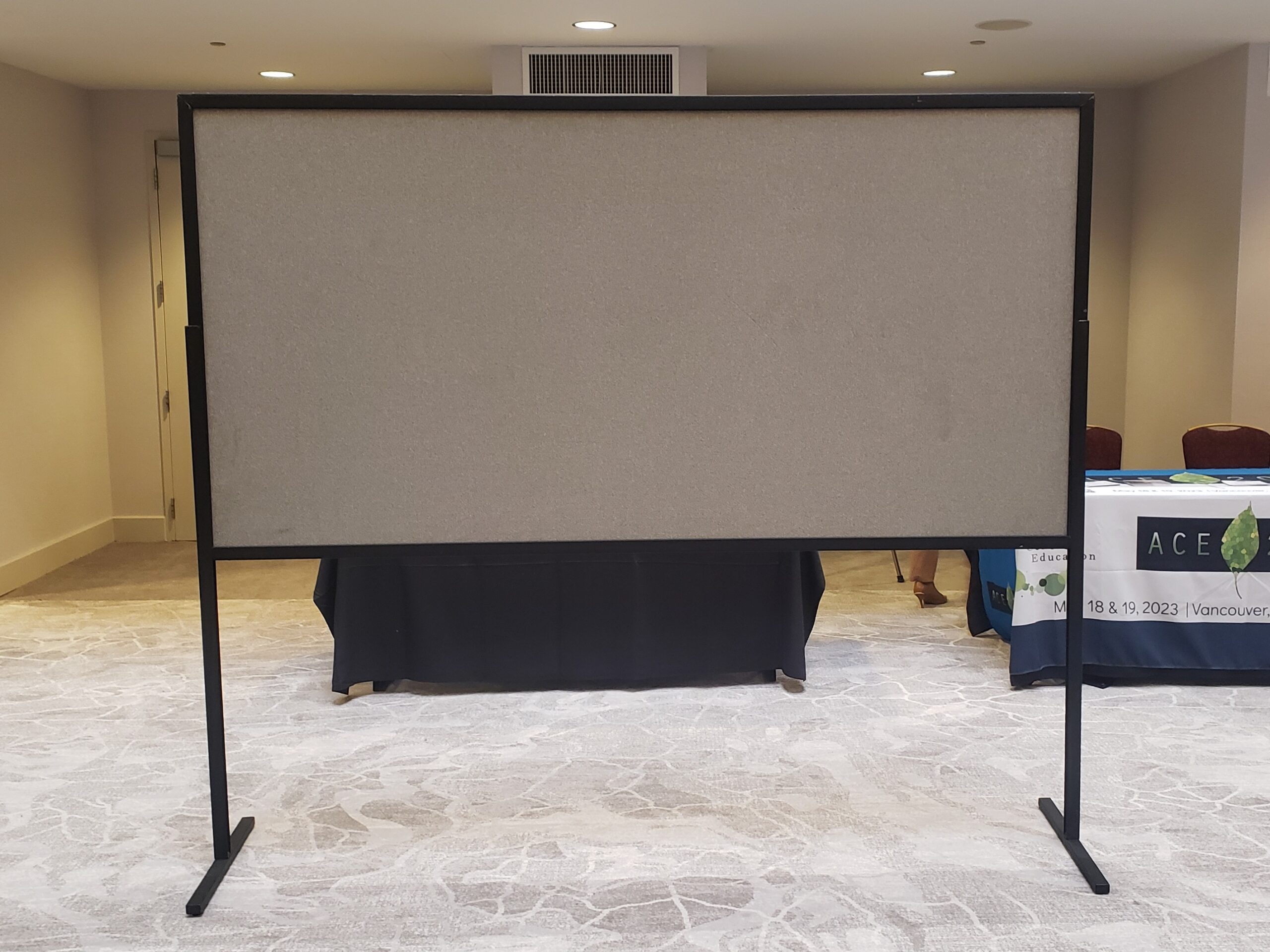
Creating an Effective Poster
Best practices for poster presentations:
- Design should be simple and eye-catching.
- Use large (24 point or larger) font.
- Posters should be able to be read within 10 minutes.
- Include an introduction and a summary panel.
- Utilize graphs and statistical data where possible, and avoid lengthy text explanations.
- Abbreviations should be kept to a minimum and clearly defined.
- Include business cards or handouts containing your name and contact information.
Poster Printing
Should you wish to have your poster printed in Milwaukee, visit DigiCOPY. The closest location to the conference headquarter hotel is 16 minutes away by public transport. Order your poster ahead of time and pick it up when it is convenient for you.
1681 North Van Buren Ave.
Milwaukee, WI 53202
https://dcopy.net/index.php
milwaukee@dcopy.net
Virtual Poster Presentation Guidelines
*Virtual presentations only.
Virtual poster presenters should prepare a three (3) minute verbal presentation to accompany their poster.
All virtual posters will be created and available for viewing through the cloud-based platform, iPosterSessions. Access to iPosterSessions will be emailed to confirmed presenting authors in August.
Familiarize yourself with the platform using the iPosterSessions video tutorials and quick guide:
Important:
- The poster must cover the same material as reported in the abstract.
The Virtual File Submission Deadline for virtual poster presenters will be published at a later date.
Creating an Effective Virtual Poster
Best practices for virtual poster presentations:
- Your virtual poster must include a three (3) minute narration of your presentation (upload a MP3 audio file or record directly within the online editor)
- Design should be simple and eye-catching
- Use large (24 point or larger) font that can be read from a distance
- Posters should be able to be read within 10 minutes
- Include an introduction and a summary panel
- Utilize graphs and statistical data where possible, and avoid lengthy text explanations
- Use of images and videos are encouraged
- Abbreviations should be kept to a minimum and clearly defined
Our 2025 Sponsors
SILVER SPONSORS
BRONZE SPONSORS
EXHIBITORS
Special thanks to our past sponsors.
Interested in being a sponsor? Learn more here.

The International Society for Quality of Life Research (ISOQOL) is a global community of researchers, clinicians, health care professionals, industry professionals, consultants, and patient research partners advancing health related quality of life research (HRQL).
Together, we are creating a future in which patient perspective is integral to health research, care and policy.

